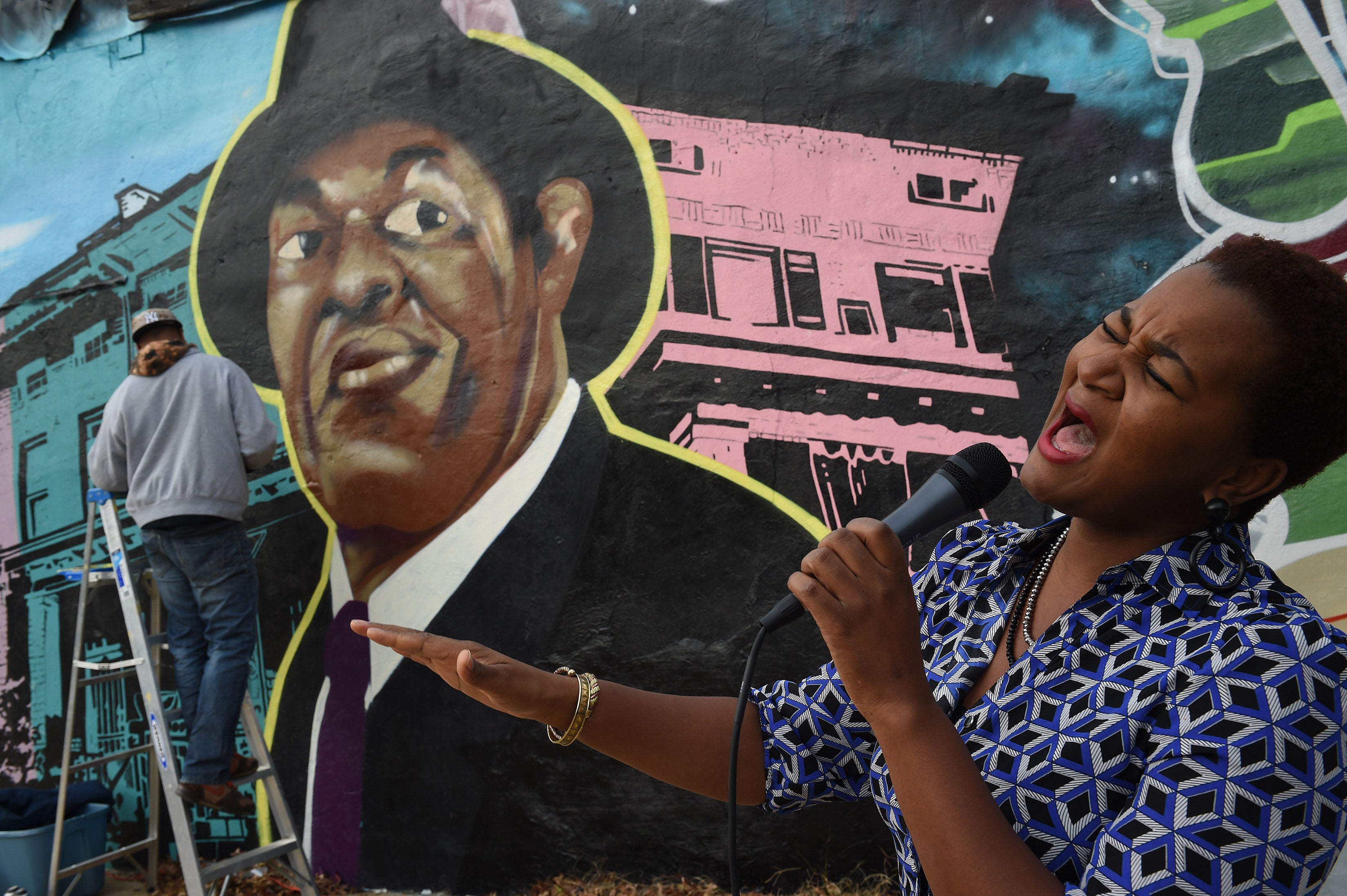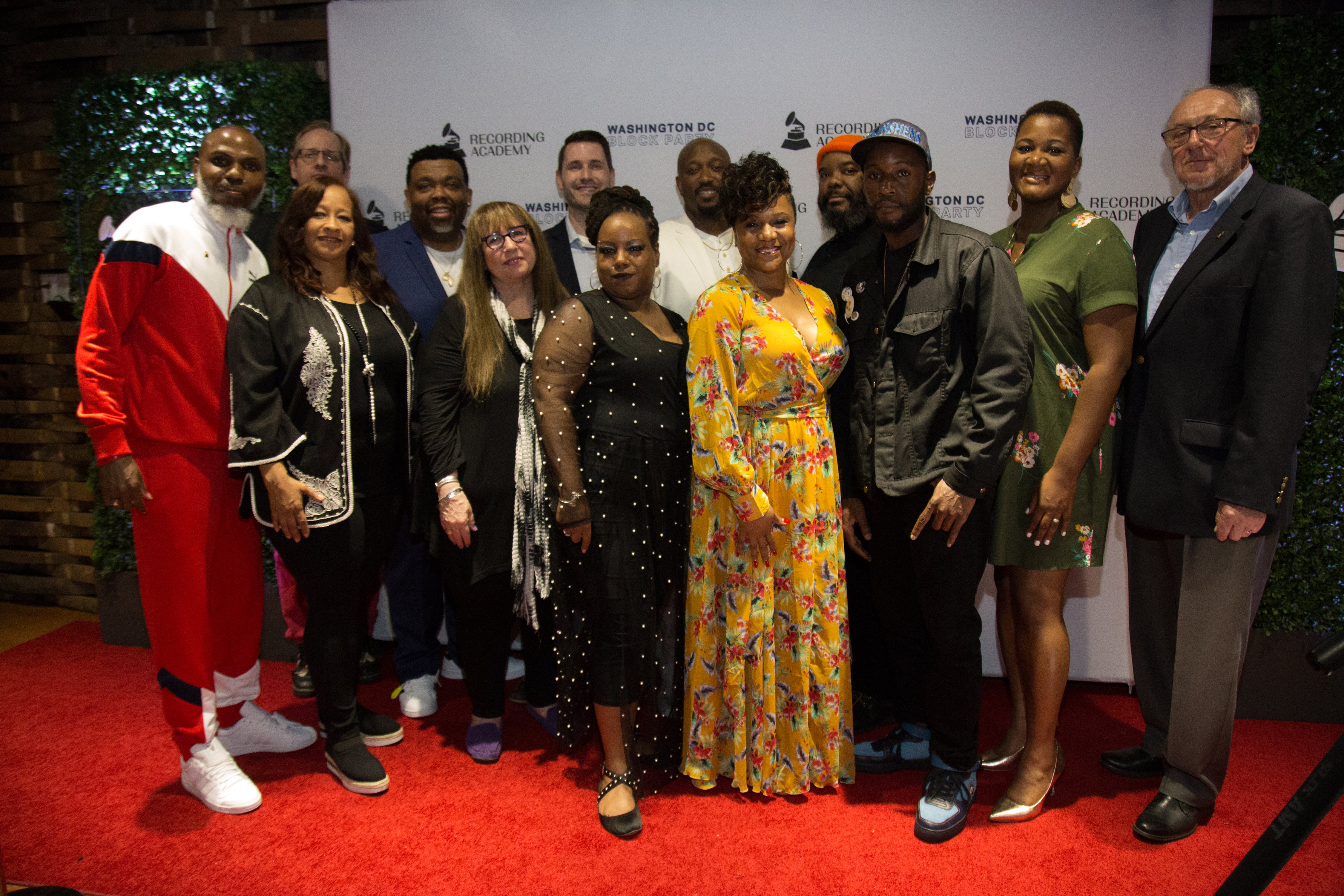
Tamara Wellons learned to sing in the church while growing up in rural Virginia.
“My grandmother and aunts had a gospel group,” she told ESSENCE. “My love of music began with that faith and family tradition.”
Today, the singer, songwriter and producer draws upon her roots and multi-octave vocal range, seamlessly flowing from hymns and jazz to soul and house music. And as Wellons releases full length albums, performs, tours and builds a new music company—Her Dreams Productions—she’s proud to be part of The Recording Academy.
While The Recording Academy is widely known for the annual GRAMMY Awards—music’s only peer-recognized accolade and highest achievement—the prestigious society of performers, songwriters, producers, engineers, and other music professionals has a dozen chapters nationwide located in many of America’s legendary music centers.
In an industry with diverse players and a myriad of genres—spanning rock, hip-hop and R&B, to country, classical, jazz, folk, Latin, House, and Go-Go, the landscape is evolving. In May, The Recording Academy’s Board of Trustees appointed Deborah Dugan as the next President and CEO—the first woman in its history.

Black women are also serving in Academy leadership roles, and many chapters are governed by experienced and respected names in music. Grammy Award-winning gospel artist, Yolanda Adams, serves as chapter president of the Recording Academy Texas. Back in April, she was among the honorees at the Recording Academy’s annual GRAMMYs on the Hill Awards in the nation’s capital, which unite the worlds of music and politics. In Los Angeles, former A & R executive Qiana Conley leads the chapter.
“Women are a vital part of the world and they’re a vital part of our organization,” said Jeriel Johnson, Executive Director of the Recording Academy Washington D.C. chapter, which also encompasses Maryland, Virginia and West Virginia.
Nearly a dozen Black women serve on the D.C. chapter board, including Wellons (Governor), Tracy Hamlin (Trustee), Elise Perry (Vice President) and Priscilla Clarke (Secretary). Sharon Ingram is the Membership and Project Manager for the chapter.
“They are committed to their careers and support each other,” said Johnson. “You can see the bond.”
ESSENCE was on hand for a Block Party-themed event that the D.C. chapter hosted back in May at City Winery. About 200 members and industry insiders—a multicultural, multigenerational mix—walked the red carpet. Comedian Joe Clair of the Joe Clair Morning Show hosted the evening of live performances, featuring both familiar artists and newer talent. Entertainment was provided by past Grammy nominee DRAM, Kevin Ross, Chaz French, Angelica Garcia and MAKUTA. Special guest, Wale, took the stage for a set accompanied by Go-Go band, Rare Essence, along with vocalist Tabria Dixon.
The music was stellar; the vibe upbeat. The crowd danced, mingled and snapped selfies all night. The chapter also presented a $1,000 check to Ottley Middle School to aid with music instruction.
Johnson explained that chapter offices are well connected with their local music and recording communities, providing professional development, networking opportunities and special events for members. He cited a Vocal Health Clinic in which the chapter brought in Grammy Award-winning artists Lalah Hathaway and Anthony Hamilton; a physician even offered expert tips on protecting one’s vocal cords. It’s just one example of the innovative, curated programs that chapters across the country host regularly.
The Academy also works to support music professionals in times of need through the MusiCares program, and it honors music history and invests in its future through the Grammy Museum. Another major thrust is advocacy on behalf of music creators to protect their intellectual property and more.

Daryl Friedman is the Recording Academy’s Chief Industry, Government and Member Relations Officer.
“We work tirelessly year-round to protect the rights of all music creators,” he told ESSENCE.
As technology has changed the way people discover and consume music, and there’s been a shift from physical sales to downloads and streams, Friedman said it’s critical that laws and rules which govern music are in place to ensure an equitable environment.
“A lot of this is achieved through education and dialogue—both with the creators directly, as well as with others in the music industry, and those that ultimately make the laws that directly impact the music creators at the state and federal levels,” he said.
There’s been success on this front. The Music Modernization Act (MMA), bipartisan legislation co-sponsored by Rep. Hakeem Jeffries (D-NY), a member of the Congressional Black Caucus and Sen. Chuck Grassley (R-IA), was signed into law by President Donald Trump last year.
If you have talent, training and skills, there are opportunities, and just as many are behind the scenes.
Tamara Wellons
The measure gives copyright protections to producers and engineers for the first time; closes a pre-1972 loophole that prevented legacy artists from receiving compensation they deserved from digital services; establishes fair compensation for songwriters and artists when the government sets rates; and creates a new entity to ensure songwriters are paid for mechanical licenses when digital services use their work.
Friedman, who works closely with the Academy’s Advocacy Committee, comprised of leading music creators such as Nile Rodgers and Booker T. Jones, said his work advocating for music professionals isn’t done yet.
“We’re now working with the digital platforms on setting compensation standards, and the process to ensure proper credit and payout,” he explained. “[The Academy] is also calling on `Big Radio’ to pay a performance right to artists.”
Wellons applauds such efforts, while continuing to build her brand. She’s produced three albums (the latest is Pretty) and performed at venues ranging from London’s Jazz Café to The Kennedy Center of the Performing Arts in Washington, D.C. Her next performance is scheduled at D.C.’s Blues Alley in June—right in time for Black Music Month.
She offers a bit of advice to those seeking to enter the music industry.
“If you have talent, training and skills, there are opportunities, and just as many are behind the scenes,” the Bowie State University alumnus told ESSENCE. “You must work hard, and get along with different personalities. You have to wake up every day and only want to make music. You have to love it.”
